The Pacific Northwest is a lush landscape in ways both literal and metaphorical. This fertile environment has shaped many of my favorite artists and albums, many of which are inextricably tied to this place — a place both wonderful and strange, to borrow a phrase from Agent Dale Cooper of “Twin Peaks.”
When music became a defining feature of my identity in my adolescence, I found music both gritty and melancholy most appealing. To me, these terms define much of the music that comes out of the Northwest. The sounds surrounding Puget Sound drifted cross-country to my eager ears in the Midwest. One discovery led to another. The Blood Brothers and Pretty Girls Make Graves led me to Unwound and The Murder City Devils. Death Cab For Cutie led to Elliot Smith. Nirvana led to The Melvins, and Sunn O))) led to Earth. The list goes on. It wasn’t until I moved to Seattle five years ago that I realized how much of my musical diet spawned from this region.
Music was one of the things that led me here. The other main reason is the physical geography. Being wedged between majestic mountain ranges, situated on the shores of an ocean inlet, and surrounded by evergreen giants; the scenery is awe-inspiring. Considering the sound and aesthetics of some of my favorite Pacific Northwest artists, more than a few draw influence from this natural grandeur. Take, for instance, Phil Elverum and Katherine Paul, the songwriters behind Mount Eerie and Black Belt Eagle Scout, respectively.
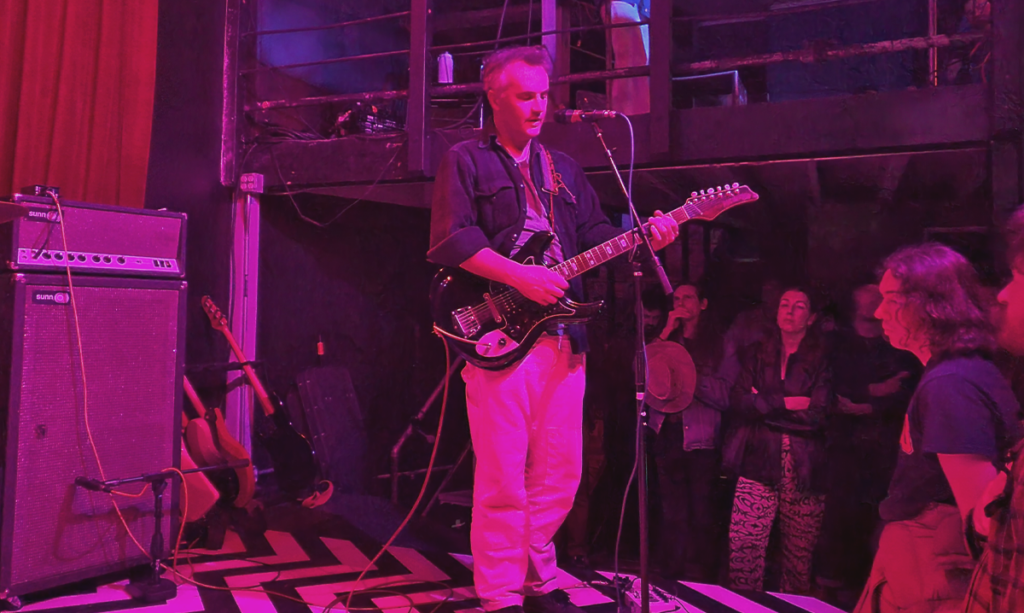
Few other artists ruminate on the nature of place and being — being in a place, a place as a being — as extensively as Elverum. Based in Anacortes, WA, he’s best known for his musical projects The Microphones and Mount Eerie. His introspective musings on the minutiae of everyday existence are both blunt and whimsical, bordering on profound. His last album, “Microphones in 2020,” is a nearly 45-minute song detailing his journey as a budding musician. It’s the first release as The Microphones since 2003’s “Mount Eerie.” Elverum adopted that album’s title as his new moniker after its release to reflect a shift in the themes and tone of his music going forward. It’s a blurry line where one ends and the other begins. On “Microphones in 2020,” he suggests these names mean nothing and states that all his songs are about “standing on the ground, looking around.” By doing so, he astutely points out the beauty of the natural world and the absurdity of the modern world, grappling with the dissonance from attempting to reconcile the two.
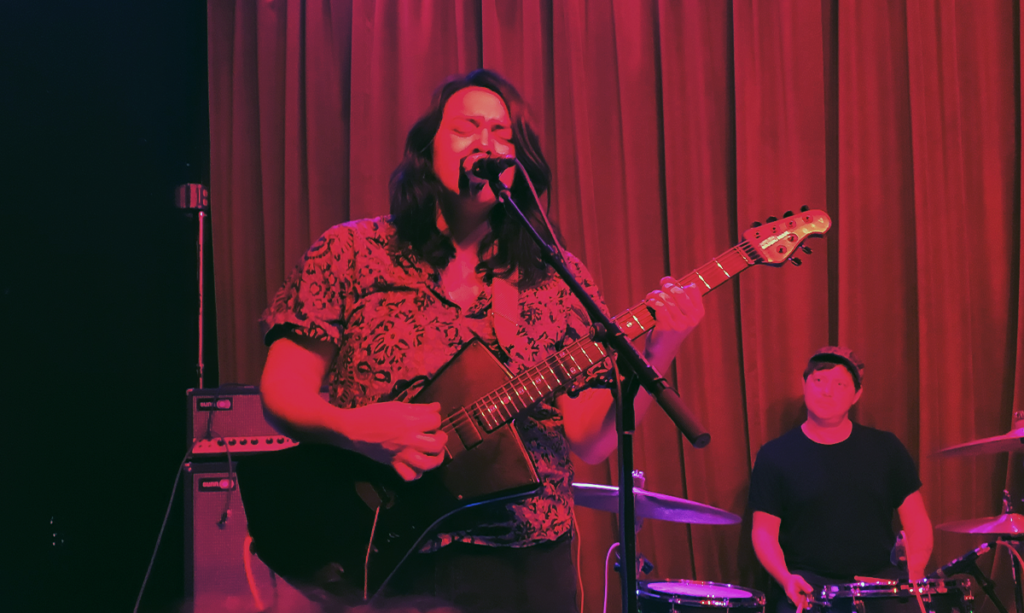
Paul was raised in the Swinomish Indian Tribal Community; her music as Black Belt Eagle Scout pays tribute to her heritage and homeland. She identifies herself as a “radical indigenous queer feminist.” In her youth, Paul learned piano and flute and participated in regional pow-wows as a jingle dress dancer. She taught herself guitar and drums by studying bootleg VHS tapes of Hole and Nirvana. In high school, she got involved in the DIY music scene in nearby Anacortes. There, she met her mentor — artist, musician, and wife of Elverum — Geneviève Castrée. Paul relocated to Portland to attend college and remained there until the COVID-19 pandemic forced the cancellation of her tour as venues shuttered across the country, prompting a return home to her tribal community. There, Paul reconnected with her roots and the land that nurtured her and her ancestors for generations. This homecoming deeply informs her latest album, “The Land, the Water, the Sky.”
The two artists have shared much history and common experiences growing up along Puget Sound and participating in the local music scene. On Dec. 16th, 2023, they shared the stage for early and late shows at the recently revived all-ages DIY venue of legend known as the Black Lodge. Both shows sold out quickly; I was thankful to secure a ticket to the late show. Each musician mines similar tonal territory that feels distinctly Northwestern: the grit of grunge awash in waves of shimmering beauty over a bedrock of melancholy. Delicate vocals hover above the music as it rises and falls in density and intensity — a sonic palette of earthen hues and the deepest blues befitting this land and its wild wonders.
Black Belt Eagle Scout was first up on the bill. I first saw them in 2022, opening up for Portland-based ambient artist, Grouper. It was a stripped-down performance that featured only Paul and her guitar. The intimate set fit the bill nicely. This time around, she had a drummer and additional guitarist to round out the band. This was a totally different experience. Paul’s stage presence was powerful yet playful, having a blast fully rocking out. The might of a full band helped songs like “My Blood Runs Through This Land” reach their sky-shredding peak. The experience further solidified my allegiance; I’ve been listening to her albums on repeat while writing this. The set ended with “Salmon Stinta,” featuring guest vocals by Elverum. The rest of the band left as Elverum joined Paul for the tranquil finale.
It was a quick turnaround between acts since each band shared gear and members. Paul and her drumming partner would return to the stage along with another guitarist and Elverum. Prior to that, Elverum would entertain the crowd by warming up with a new song he’s been working on. Up there alone with his guitar, elbows poking through holes in the sleeves of his well-worn flannel, the crowd was at attention with looks of adoration across our faces. When the rest of the band joined, they launched into a set that mainly featured older material with several brand-new tracks mixed in.
This was a set for the diehards. Save for the new songs, nothing beyond 2012’s “Clear Moon” made the cut. The title track from that album was even more foggy and foreboding when performed live. Elverum switched to bass and seemed to channel Seattle drone lords, Sunn O))). This connection was further emphasized by the fact that the backline consisted of three full Sunn cabinets and Elverum’s use of the Earthquaker Life Pedal, designed by the band whose namesake derives from the legendary amplifiers.
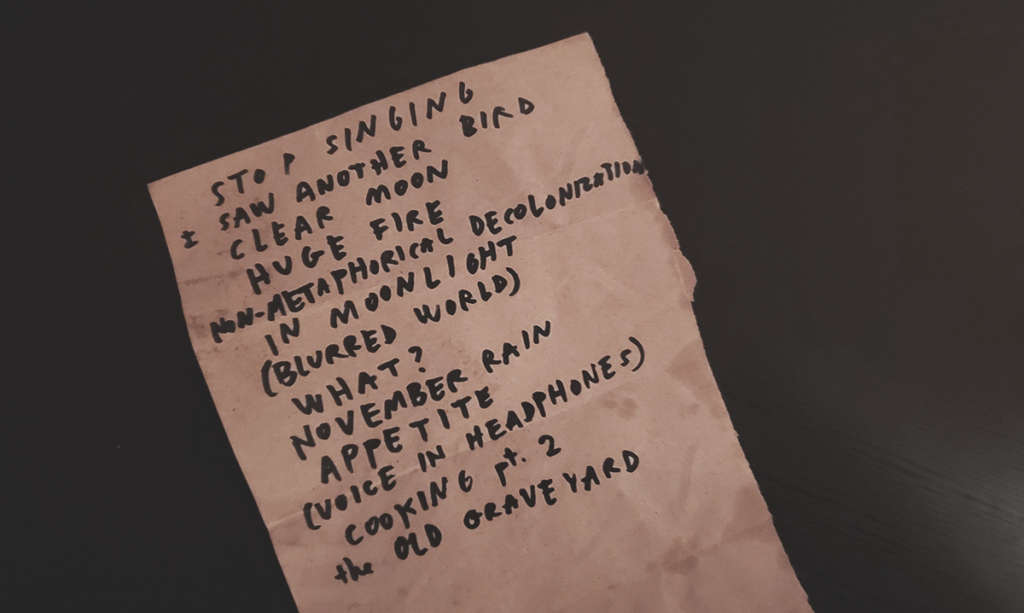
A new track entitled “Non-metaphorical Decolonization” was prefaced by an acknowledgment that this land was stolen and should be returned to the indigenous people who first populated it. In the song, he wonders what this land was like before it had a name, when no one claimed it. Caught between our present reality and some ancient, unknowable past is where Mount Eerie resides.
One of the set’s major highlights was “Voice in Headphones.” The original track features Julie Doiron of Eric’s Trip — one of Elverum’s biggest influences. The song’s refrain is lifted from the song “Undo” by Björk. Paul was a perfect stand-in for Doiron, her vocals overlapping with Elverum’s verses; the crowd was in tune with the performers, swaying and singing along. In this moment, the weight of the world was lifted from the collective shoulders of everyone in the room.
Near the end of the set, Elverum expressed his gratitude to the audience and the venue. “I just like it here,” he said, relieved to be back in the space that has fostered Seattle’s underground music scene for two decades. The venue had been shuttered for several years following the pandemic. The space now operates as a base of operations for Hollow Earth Radio and Nellis Records and continues to host all-ages shows. The performance area received a “Twin Peaks” makeover. Red curtains hang on the walls around the stage, now adorned with a black and white zig-zag pattern featured in the Red Room of the venue’s namesake. “Twin Peaks” was primarily filmed in Washington; its Cascadian locations provided a sense of wonder and mystique that amplified the show’s tone. It greatly influenced Elverum, most notably in the track “Between Two Mysteries.”
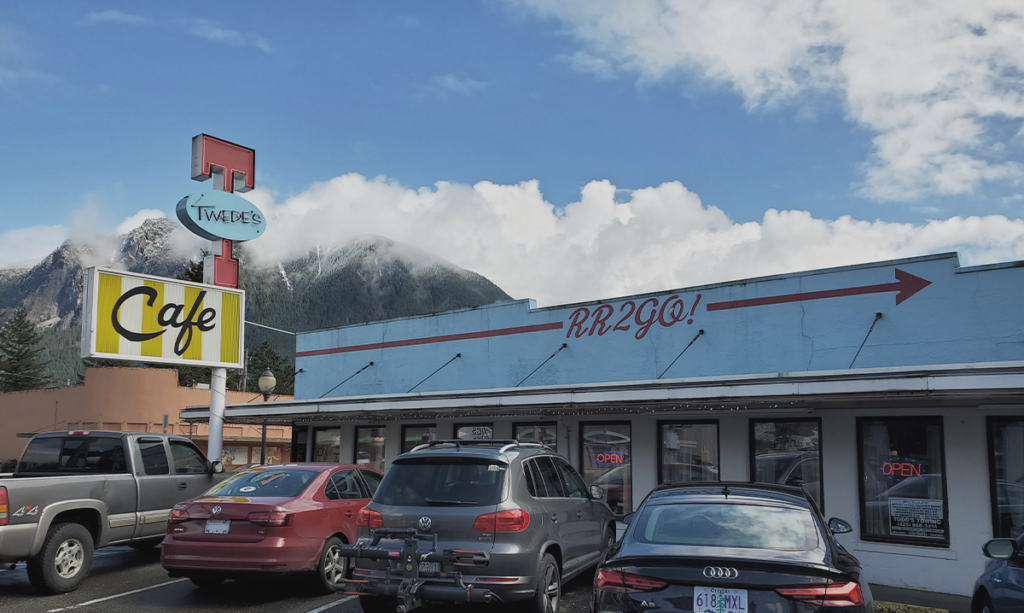
He mentioned a show at the Black Lodge in 2014. His wife, Castrée, performed as Ô Paon with Thou, Cloud Rat, and Samothrace. Her experimental folk, sung in French, was a complementary contrast to the metal bands on the bill. Phil asked if anyone in the audience was in attendance; two hands were raised (if I were living here then, it would’ve been three). I would be remiss not to mention that she died of pancreatic cancer just two years later, shortly after the birth of their only child. This devastating moment in Elverum’s life is painstakingly detailed on his emotionally gutting 2017 album, “A Crow Looked at Me.” But this moment wasn’t one of grief and sadness. Performing in a place full of fond memories, sharing the stage with Castrée’s protégé, and remembering her on that same stage was another joyful moment. The Black Lodge was still alive, and so was her memory.
This show stirred similar emotions for me. It was just over a year ago that my good friend, Mike, was killed in a hit-and-run while biking. Our friendship solidified around our shared love of music. We had similar tastes and shared a lot of music and memories over the nearly 15 years I knew him. When I first got wind of Mount Eerie, I mentioned them to Mike. He lit up and told me all about Elverum and shared with me The Microphones and Mount Eerie albums he had in his iTunes library. We saw Mount Eerie play for the first time in 2013. I loved attending shows with Mike; his energy and enthusiasm were infectious.
Seeing them again at Black Lodge was the first time since that show a decade prior. All I could think was, “I wish Mike were here. He’d absolutely love this set.” But I wasn’t sad. Like Elverum and everyone else in attendance, I felt joy. I can’t help but smile whenever I think of him because my time with him was always full of joy. We shared many passions, none more rapturous than music. His memory is always with me when I listen to music or see it live. But this show struck a deeper chord. It seemed to be an emotionally nourishing experience for all involved.
Afterward, I sheepishly made my way to the merch table to speak to Phil before a line formed. I mentioned what happened to Mike and how much this show meant to me. It’s a pretty awkward thing to be so raw about grief to a complete stranger. But if he can be brave enough to release an album like “A Crow Looked Me,” I can share my experience and heartfelt gratitude. He was sorry to hear what happened but grateful to know that this was healing for me. I left the show feeling uplifted yet firmly grounded, connected to the world around me.
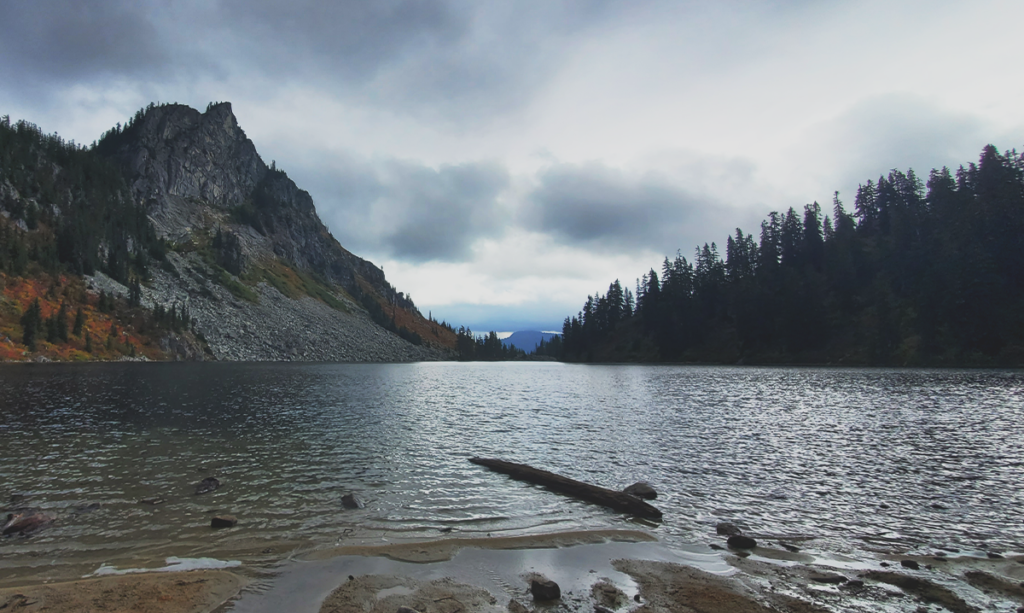
There’s something about the character of the Northwest that shapes the artists who reside here. Being in constant view of mountains on the horizon, surrounded by trees, these omnipresent reminders of wildness conjure a certain mentality — or sentimentality — that we’re not so far removed from the natural world. It makes the absurdity of the human world more pronounced. This stirs emotions, and the impact can be profound.
These sights and sounds; they beckoned me. So here I am. Inspired to honor and contribute to this rich artistic lineage.
Author
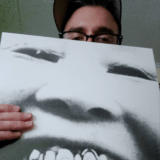
Joel is an art damaged music nerd occasionally hugging trees and decrying the brutal nature of capitalism. He studied cultural anthropology and art history as an undergrad and is pursuing his AAS in graphic design at the Seattle Central Creative Academy. When not working on art, music, or writing, he’s usually hiking, biking, or lounging in his hammock reading manga.

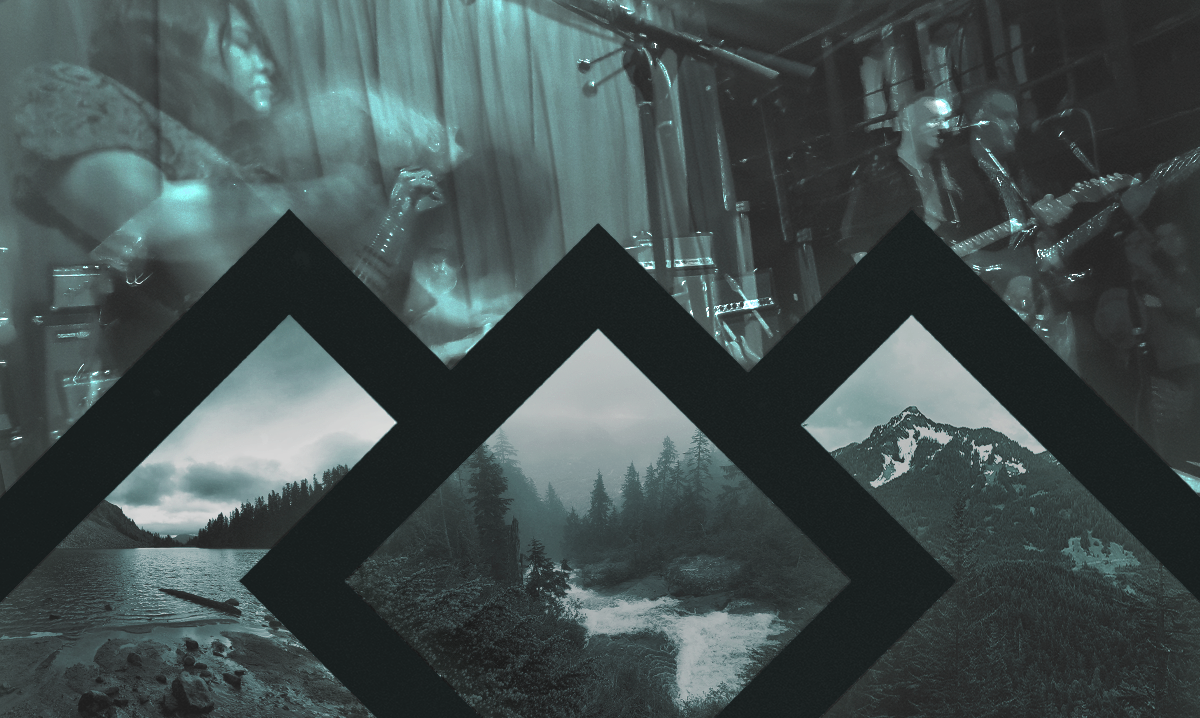





Be First to Comment